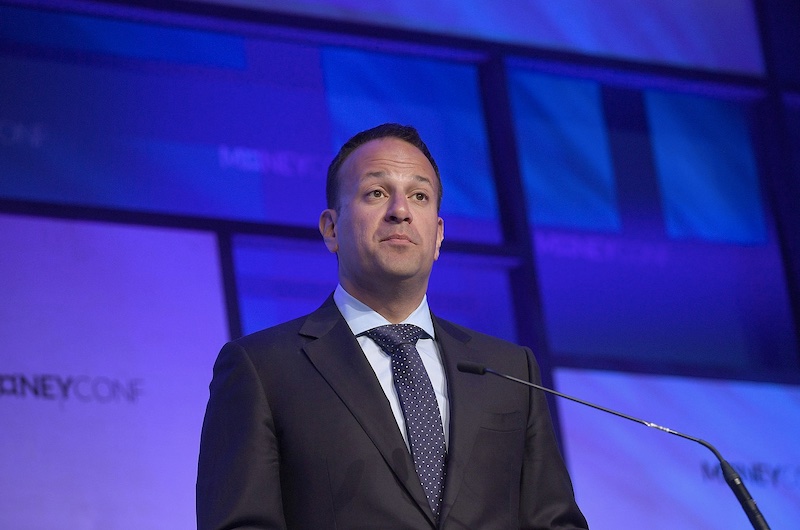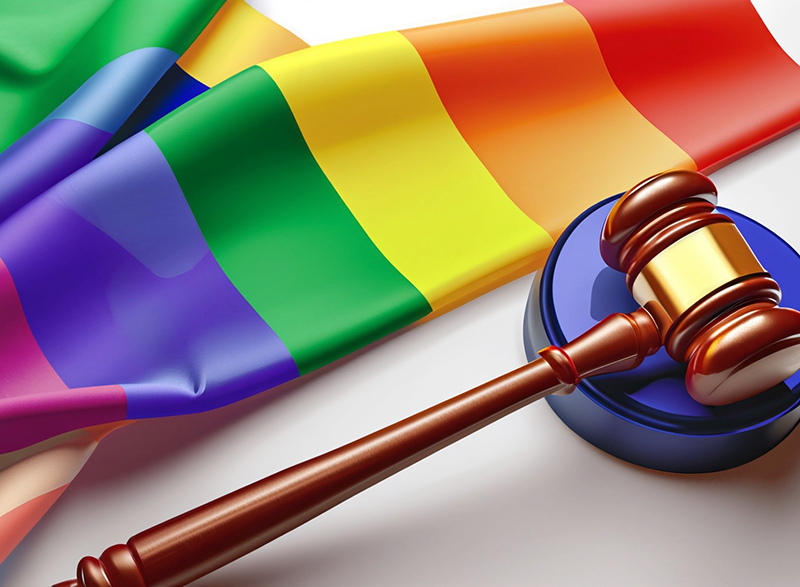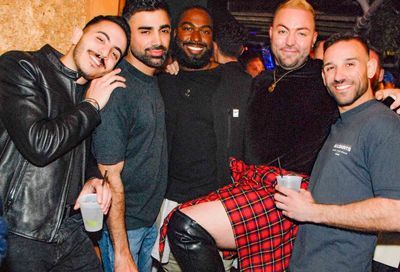Texas Supreme Court revives case challenging same-sex spousal benefits
LGBTQ advocates say decision is a "naked attempt" to undermine U.S. Supreme Court's marriage equality ruling

On Friday, in a unanimous decision, the Texas Supreme Court issued a ruling that strikes at the fundamental argument underlying the Supreme Court’s 2015 decision to legalize marriage equality nationwide.
At issue in the case, Pidgeon v. Turner (previously known as Pidgeon v. Parker), is the decision by the city of Houston’s then-Mayor Annise Parker to extend spousal benefits to employees in same-sex marriages legally obtained in other states following the Supreme Court’s decision in U.S. v. Windsor, which overturned Section 3 of the anti-gay Defense of Marriage Act.
In response, Houston residents Jack Pidgeon, a pastor, and Larry Hicks sued Parker and the city, arguing that providing benefits to same-sex spouses violates an amendment to the Texas Constitution banning same-sex marriages, and a statutory ban on same-sex marriages in the Texas Family Code. A Texas state district judge ruled in favor of Pidgeon and Hicks, but the Texas 14th Court of Appeals overturned that decision following the Supreme Court’s decision legalizing marriage equality in Obergefell v. Hodges.
Pidgeon and Hicks then petitioned the Texas Supreme Court to review the case. Initially, the court declined, but later caved to pressure from a letter-writing campaign by social conservatives and from GOP officeholders, including Gov. Greg Abbott, Lt. Gov. Dan Patrick, and Attorney General Ken Paxton. (In Texas, Supreme Court justices are elected.)
In its decision today, the Texas Supreme Court essentially revived Pidgeon and Hicks’ challenge against the marital benefits, sending the case back to the trial court to argue their case on the merits.
“In Obergefell, the Supreme Court acknowledged that our historical view of marriage has long been ‘based on the understanding that marriage is a union between two persons of the opposite sex.’ It concluded, however, that this ‘history is the beginning of these cases,’ and it rejected the idea that it ‘should be the end as well.’ But Obergefell is not the end either,” Justice Jeff Boyd wrote on behalf of the court.
“Already, the Supreme Court has taken one opportunity to address Obergefell’s impact on an issue it did not address in Obergefell, and there will undoubtedly be others,” Boyd added, referring to the Supreme Court’s decision to hear a case involving a baker’s refusal to bake a cake for a same-sex wedding. “Pidgeon and the Mayor [Sylvester Turner], like many other litigants throughout the country, must now assist the courts in fully exploring Obergefell’s reach and ramifications, and are entitled to the opportunity to do so.”
The Texas Supreme Court justices also referenced — but seem to ignore the implications of — another Supreme Court decision, Pavan v. Smith, which was issued on the same day it agreed to hear the Masterpiece Cakeshop case. In that case, the Supreme Court found that its ruling in Obergefell required Arkansas to issue birth certificates to children of married same-sex couples listing both adults as parents, since it already does so for non-biological heterosexual parents.
Nonetheless, the court writes: “The Court’s decision to hear and consider Masterpiece Cakeshop illustrates that neither Obergefell nor Pavan provides the final word on the tangential questions Obergefell’s holdings raise but Obergefell itself did not address….We hold that the court of appeals’ judgment does not bar Pidgeon from seeking all appropriate relief on remand or bar the Mayor from opposing that relief….And we decline to instruct the trial court how to construe Obergefell on remand.”
LGBTQ advocates lit into the court’s ruling, calling it politically motivated.
“This absurd contortion of the Obergefell ruling defies all logic and reason, especially in light of the Supreme Court’s explicit ruling on Monday that marriage is marriage and equal is equal,” Kenneth Upton, Jr., senior counsel in Lambda Legal’s South Central Regional Office in Dallas. “The court was very clear in the majority opinion about the scope of what marriage entails.”
Upton also noted that the original Obergefell decision specifically involved the extension of health insurance benefits to same-sex spouses.
“This naked attempt to undermine Obergefell and relegate married lesbian, gay, and bisexual public employees to second-class status cannot be allowed to stand,” he said.
“This decision is political and is an example of why elected judges are bad for LGBT people and bad for judicial independence,” Eric Lesh, the Fair Courts Project Director at Lambda Legal, said in a statement.
Equality Texas issued a statement saying the court’s opinion “clings to unconstitutional notions of ‘separate but equal'” and “patently indefensible.”
“This is a sad day for Texas as our highest court joins the ranks of Mississippi and Arkansas in refusing to abide by the Constitution’s mandate to recognize the dignity and equality of all persons,” the group said in its statement. “The U.S. Supreme Court has made clear that marriage equality is settled law and requires states to treat married same-sex couples equally in every area of the law.
“Extreme partisan politics has no place at the Texas Supreme Court and this decision is sure to damage the Texas brand and further tarnish the reputation of this state as being unwelcome and hostile to LGBTQ Texans.”
Support Metro Weekly’s Journalism
These are challenging times for news organizations. And yet it’s crucial we stay active and provide vital resources and information to both our local readers and the world. So won’t you please take a moment and consider supporting Metro Weekly with a membership? For as little as $5 a month, you can help ensure Metro Weekly magazine and MetroWeekly.com remain free, viable resources as we provide the best, most diverse, culturally-resonant LGBTQ coverage in both the D.C. region and around the world. Memberships come with exclusive perks and discounts, your own personal digital delivery of each week’s magazine (and an archive), access to our Member's Lounge when it launches this fall, and exclusive members-only items like Metro Weekly Membership Mugs and Tote Bags! Check out all our membership levels here and please join us today!





















